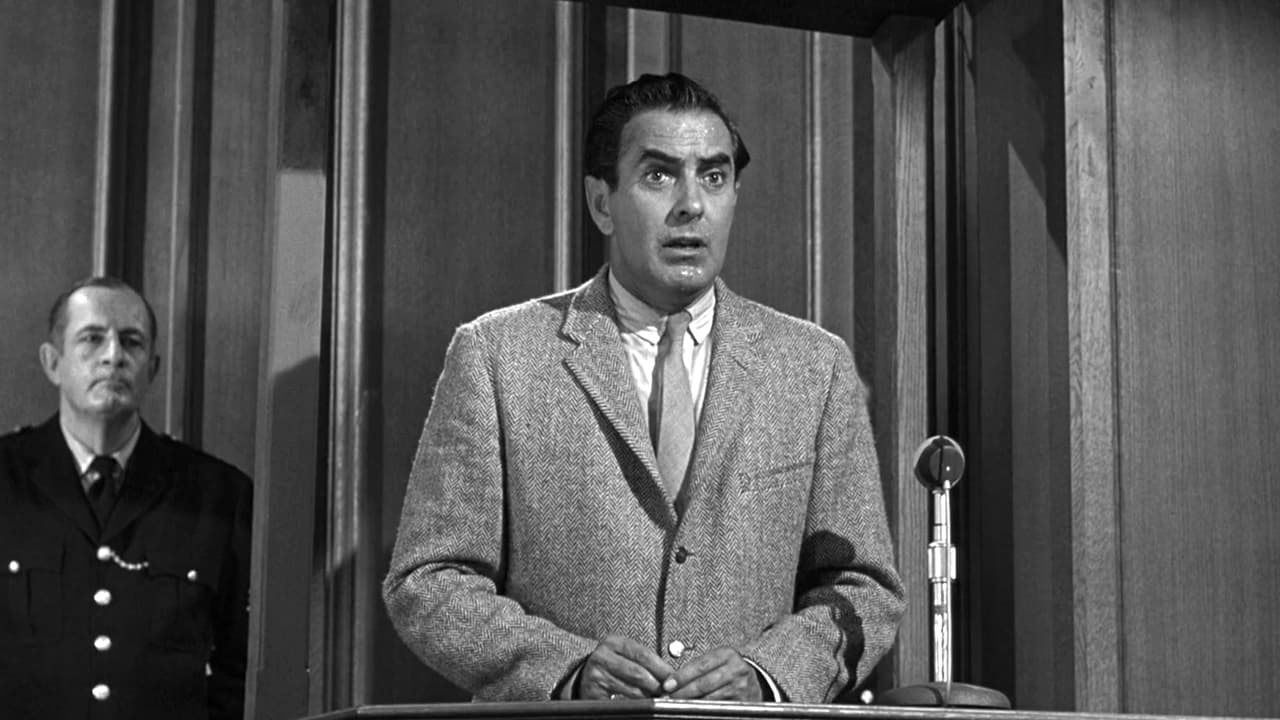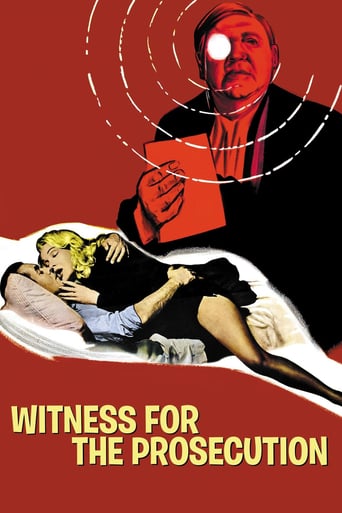

It has been only some two months since I watched the recent, also Agatha Christie's based, Murder on the Orient Express. Even though one has a 60 year advantage over the other, Witness for the Prosecution was an incredibly better movie.I really love it when a film gets me so caught up that I feel at the same time worried and excited about what it's happening. It starts slowly with a calm slow pace, setting up the plot very similarly as the Sherlock Holmes cases, and at the same time Sir Wilfrid becomes irreversibly involved with the case I was unaware of how much I myself became involved in the plot. Superb movie.
... View MoreAgatha Christie is one of the most adapted writers for the big screen, but also rarely managed to deliver a bad movie script. Her crime mysteries were just to good in their core, offering endless plot twists, as did one of her first adaptations, "Witness for the prosecution". William Wilder's movie brought Marlen Dietrich's charisma to the big screen, but also managed to keep the tension of a murder trial all the way through the entire movie, climaxing in a really unexpected climax at the very end. On the other hand, the acting and the development of characters won't be revolutionary If you are into crime/mystery/trial movies you should not miss "Witness for the prosecution", a classical genre mainstream.
... View MoreOriginally a short story by Agatha Christie, which was then adapted into a play, which then served as the basis for this film. A down on his luck fellow named Leonard Vole (Tyrone Power) befriends an elderly widow, who just happens to be loaded. She also happens to end up dead, with Leonard blamed for the murder. Enter one elderly barrister named Sir Wilfrid Robarts (Charles Laughton), who has just gotten out of a hospital after a lengthy stay due to reasons of excessive lifestyle and bad habits. But, the case intrigues him, so he takes Mr. Vole as his client despite the protests of his nurse.Most of these courtroom dramas follow a fairly predictable pattern. Not that other genres don't have their conventions and clichés, but courtroom dramas rarely even try to hide them or shy away from them. With them the pattern is the point of it. You want the predictability, to a certain degree. You want to play along and try to guess the final outcome. Likewise with this film. Most of the running time is spent going over the case, reviewing past events, getting to know the characters.And it works. Charles Laughton especially is a blast. Sir Wilfrid is a wreck of a human being. Man consumed by vice. But then the case starts and his cunning intellect is suddenly at the forefront, his gaze unwavering and sharp.This was also Tyrone Power's last film. He would die during the filming of his next movie. But, as far as swansongs go, this is not a poor legacy to leave behind.But then, the main point of these films. The ending, when something is suddenly revealed. A key point of evidence is found, a new witness appears, someone cracks on the bench. I absolutely don't want to spoil anything, but the original story is by Agatha Christie. Trust me when I say it's wonderful.Witness for the Prosecution is a gem of its genre. Professionally crafted and entertaining, with great characters and an ending that won't leave you disappointed.
... View MoreSir Wilfrid Robarts (Charles Laughton), a master barrister in ill health, takes on Leonard Vole (Tyrone Power) as a client, despite the objections of his private nurse, Miss Plimsoll (Elsa Lanchester), who says the doctor warns him against taking on any criminal cases. Vole is accused of murdering Mrs Emily French (Norma Varden), a rich, older widow who had become enamoured with him, going so far as to make him the main beneficiary of her will. Strong circumstantial evidence points to Vole as the killer, but Sir Wilfrid believes Vole is innocent.When Sir Wilfrid speaks with Vole's German wife Christine (Marlene Dietrich), he finds her rather cold and self-possessed, but she does provide an alibi. Therefore, he is greatly surprised when she is called as a witness for the prosecution. While a wife cannot testify against her husband, Christine was in fact still married to a German man when she wed Leonard (who was in the Army and part of the occupation forces in Germany). She testifies that Leonard admitted to her that he had killed Mrs French, and that her conscience forced her to finally tell the truth.During the trial in the Old Bailey, Sir Wilfrid is contacted by a mysterious woman who, for a fee, provides him with letters written by Christine herself to a mysterious lover named Max. The affair revealed by this correspondence gives Christine such a strong motive to have lied that the jury finds Leonard not guilty.
... View More